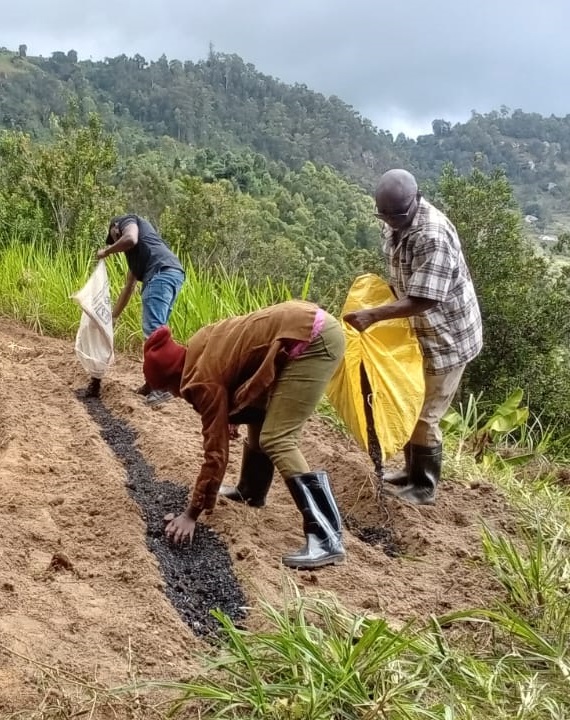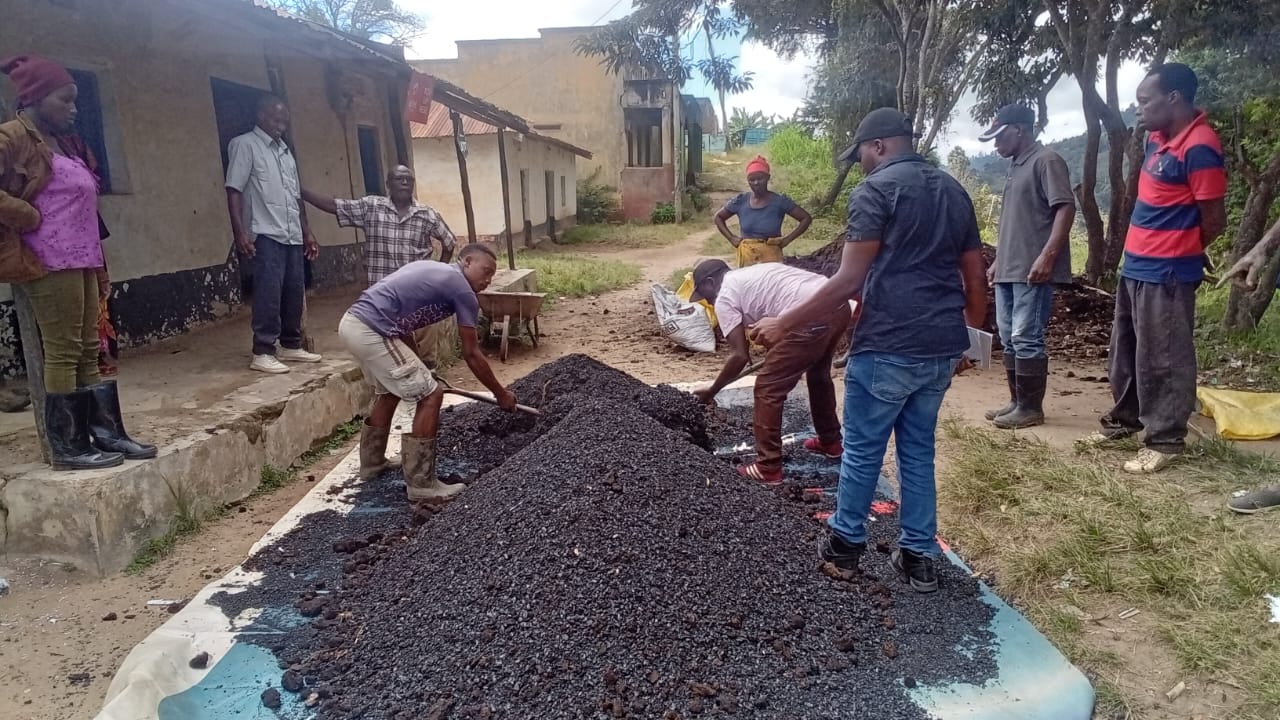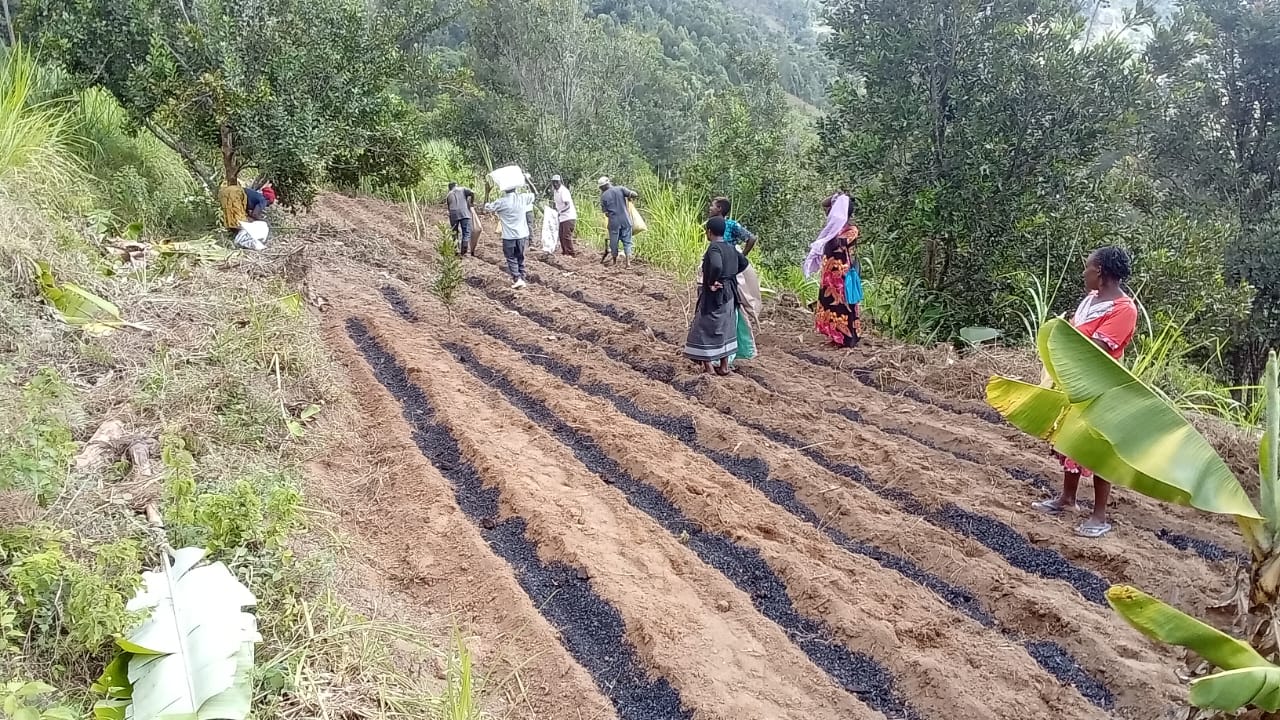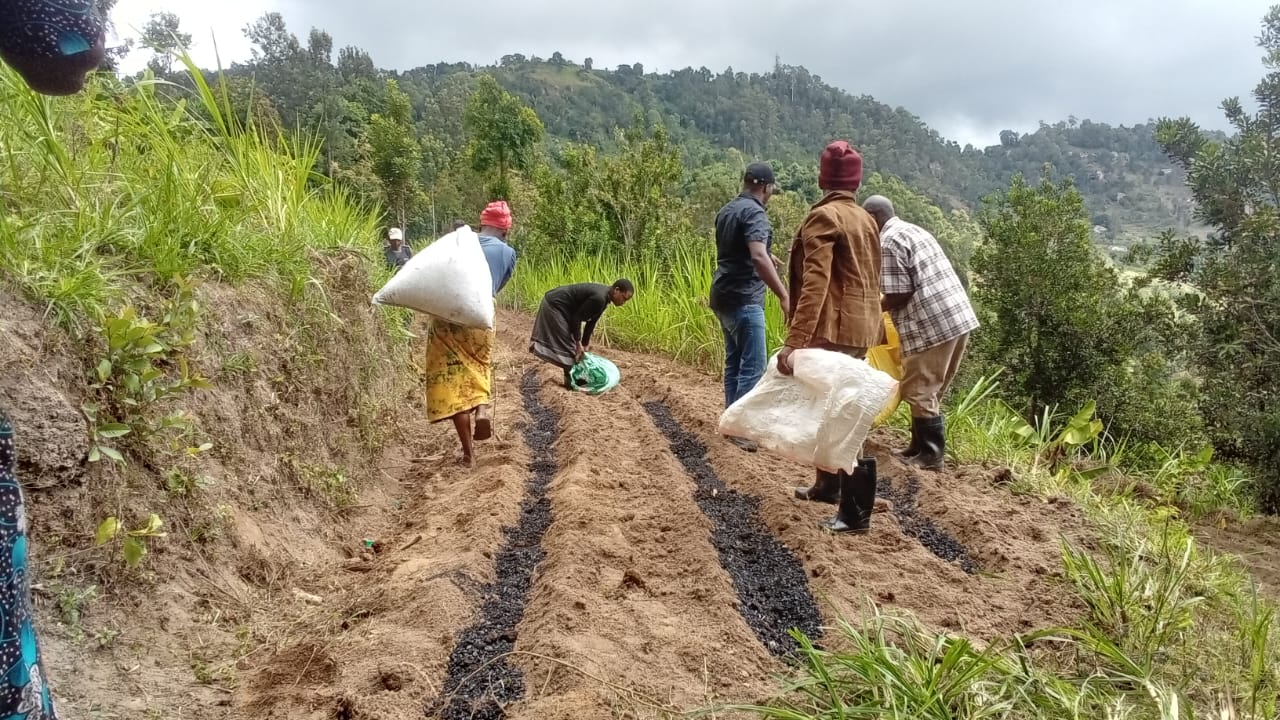Cashew nut production is an important occupation in coastal Kenya. But cashew production had declined drastically due to inadequate crop management practices, old unproductive orchards, poor quality planting materials, high post-harvest losses, prevalence of pests and diseases and poor marketing infrastructure and processes. This has unfortunately reduced its economic importance. Therefore, we are happy to tell, that we together with partners now have started testing the possibility of using biochar to improve soil quality in one of our newer DGBP-project.
The preparations and planting took place in Mlondo, Wundanyi, Taita Taveta County in Kenya in May. The pictures here are from one of the three test plots where biochar is being incorporated into the soil to investigate whether it increases soil fertility (as a fertilizer) and whether it enhances the soil’s water retention capacity.

The activities are a part of our project Inclusive CO2 Sequestration in the Kenyan Nut Industry. The objective of the project is to validate the reduction of CO2 emissions by use of agri-waste, while creating jobs, and increasing income and improving livelihoods for nut farmers in coastal Kenya.
By creating waste management hubs at nut processing sites, Danish pyrolysis solutions will produce biochar and ensure efficient electricity production. Eventually the project will also produce biofuel. Also, the project will use biochar soil improvement in Kenya. This will increase:
- Nut production
- Employment in processing, especially for women & youth
- Profit shares from CO2 credits & renewable energy production
The project ‘Inclusive CO2 Sequestration in the Kenyan Nut Industry’ is developed together with MASH Makes A/S, Grow Fairly Ltd., Farm Africa and LM Africa Services, It is funded by the Danish Ministry of Foreign Affairs through the Danida Green Business Partnerships (DGBP) program.



